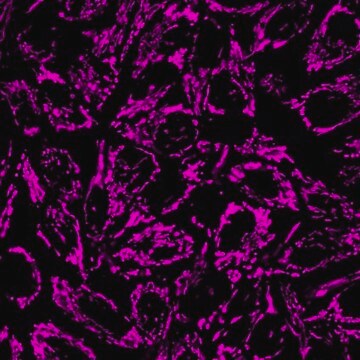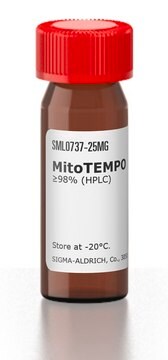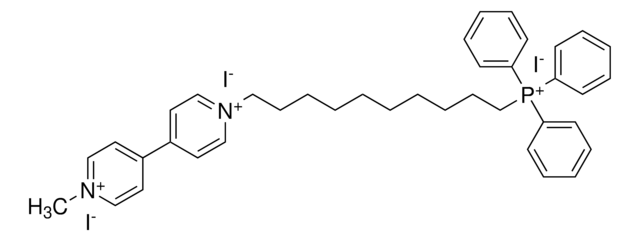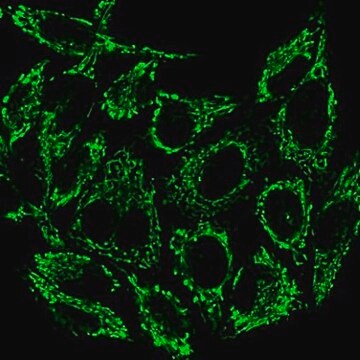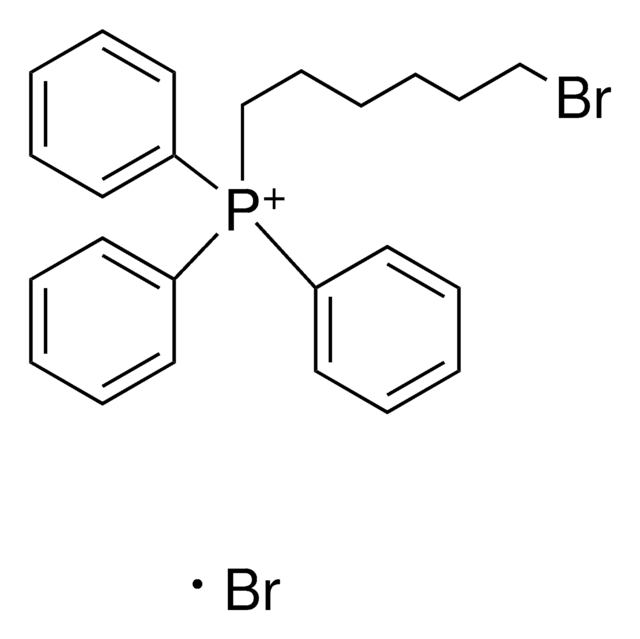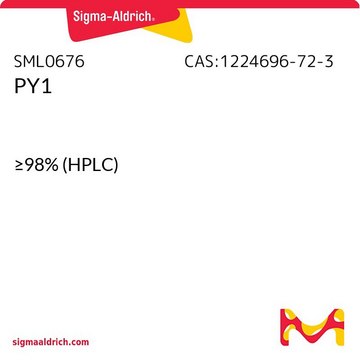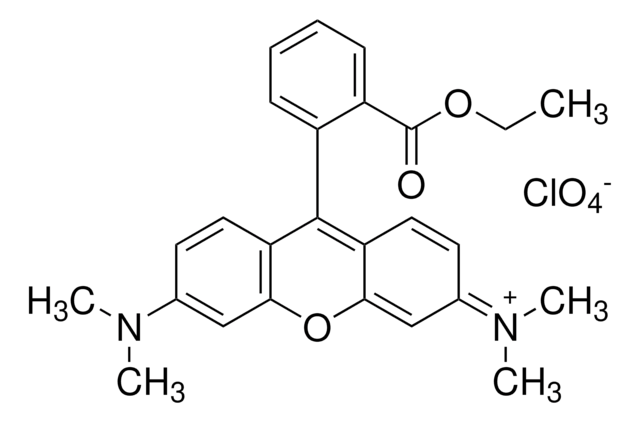53271
Mito Red
suitable for fluorescence, ≥70% (HPLC)
Sinónimos:
3,6-Bis(diethylamino)-9-[2-(4-methylcoumarin-7-yloxycarbonyl)phenyl]xanthylium chloride, Rhodamine B 4-methylumbelliferyl ester chloride
About This Item
Productos recomendados
Nivel de calidad
Análisis
≥70% (HPLC)
formulario
solid
fluorescencia
λex 569 nm; λem 594 nm in DMSO
idoneidad
suitable for fluorescence
temp. de almacenamiento
2-8°C
cadena SMILES
[Cl-].CCN(CC)c1ccc2c(-c3ccccc3C(=O)Oc4ccc5C(C)=CC(=O)Oc5c4)c6ccc(cc6[o+]c2c1)N(CC)CC
InChI
1S/C38H37N2O5.ClH/c1-6-39(7-2)25-14-17-31-33(21-25)44-34-22-26(40(8-3)9-4)15-18-32(34)37(31)29-12-10-11-13-30(29)38(42)43-27-16-19-28-24(5)20-36(41)45-35(28)23-27;/h10-23H,6-9H2,1-5H3;1H/q+1;/p-1
Clave InChI
XCVSDCPWJRHMSZ-UHFFFAOYSA-M
Descripción general
Aplicación
Código de clase de almacenamiento
11 - Combustible Solids
Clase de riesgo para el agua (WGK)
WGK 3
Punto de inflamabilidad (°F)
Not applicable
Punto de inflamabilidad (°C)
Not applicable
Equipo de protección personal
Eyeshields, Gloves, type N95 (US)
Certificados de análisis (COA)
Busque Certificados de análisis (COA) introduciendo el número de lote del producto. Los números de lote se encuentran en la etiqueta del producto después de las palabras «Lot» o «Batch»
¿Ya tiene este producto?
Encuentre la documentación para los productos que ha comprado recientemente en la Biblioteca de documentos.
Los clientes también vieron
Artículos
Nitric oxide (NO) as a signal transporter in neurons, endothelial cells and in the immune system.
Nuestro equipo de científicos tiene experiencia en todas las áreas de investigación: Ciencias de la vida, Ciencia de los materiales, Síntesis química, Cromatografía, Analítica y muchas otras.
Póngase en contacto con el Servicio técnico
